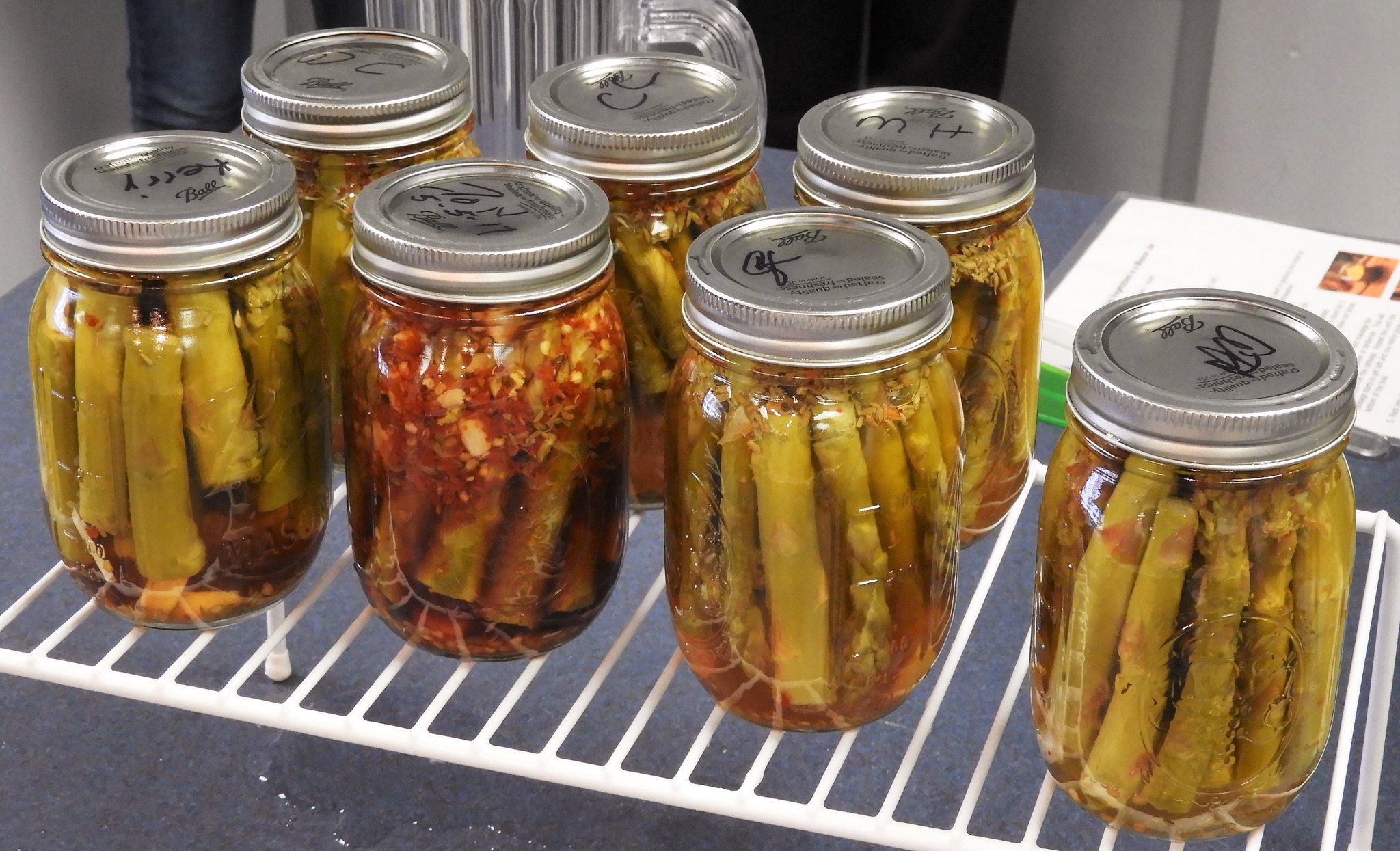It’s important to plan ahead for emergencies such as a tornado, ice storm, flooding, blizzard, power failure, or illness that would prevent you from getting to the store for food. An emergency may also result from loss of employment, therefore decreasing the financial resources available to purchase food. Whatever the situation, knowledge of food safety and storage is important.

Food safety tips
- Wash hands before handling food.
- Don’t eat foods from damaged containers. Keep foods clean.
- Keep cold foods cold and hot foods hot.
- Boil all home-canned, low-acid vegetables and meats for 10 minutes plus one minute per 1,000 feet in altitude before tasting.
- Don’t leave cooked or opened cans of food at room temperature longer than 2 hours.
Preparing food for emergencies
- Keep a three-day supply of food and water per person.
- Stock foods that require no refrigeration.
- Store foods your family normally eats, plus favorite treats. A crisis is not the time to learn to eat new foods.
- Avoid salty foods, as this will increase thirst.
- Store single servings or one-meal sizes to avoid leftovers, as refrigeration may not be available.
- Canned foods keep almost indefinitely if cans are undamaged.
- Cans can also work like cooking and serving dishes. Open the can and remove the label before heating.
- Do not place metal cans in the microwave.
What foods are good for storage
- Water – one gallon per person per day for drinking, cooking, and personal hygiene.
- Ready-to-eat canned foods – vegetables, fruit, beans, meat, fish, poultry, meat mixtures, pasta.
- Soups – canned or “dried soups in a cup”.
- Smoked or dried meats – commercial beef jerky.
- Dried fruits and vegetables – raisins, fruit leather.
- Juices (vegetable and fruit) – bottled, canned, or powdered.
- Milk – powdered, canned, evaporated.
- Staples – sugar, salt, pepper, instant potatoes and rice, coffee, tea, cocoa mix. Ready-to-eat cereals, instant hot cereals, crackers, hard taco shells.
- High-energy foods – peanut butter, jelly, nuts, trail mix, granola bars. Cookies, hard candy, chocolate bars, soft drinks, other snacks.
Food safety for perishable food
When the power goes off, and you have no idea when it will be back, then it’s time to think about food safety. The key to determining the safety of foods in the refrigerator and freezer is their temperature. Bacteria that multiply rapidly at temperatures above 40 F cause most foodborne illnesses.
Safety tips for perishable foods:
- Keep the refrigerator and freezer doors closed. Every time you open the refrigerator door, cold air escapes.
- Refrigerated items should be safe if the power is off no more than about 4-6 hours.
- A full freezer should keep foods safe for about two days; a half-full freezer, about one day.
- Keep foods that still contains ice crystals and/or if the freezer is less than 40 F for one or two days at most. These foods can be refrozen or cooked and eaten.
- Discard any perishable food above 40 F for 2 or more hours or any food that has an unusual odor, color, or texture.
- Never taste food to determine its safety. Some foods may appear fine, but harmful bacteria and or toxins may be present.
Water storage tips
Store one gallon of water per person per day, for drinking, cooking, and personal hygiene. Options for safe water in an emergency include:
- Bottled water
- Tap water stored in sterilized containers
- Uncontaminated water drained from your hot water heater/plumbing system
- Water you purify after an emergency
Food safety resources
- USDA Meat & Poultry Hotline: 1-800-535-4555
- Put Knowledge to Work: Home and Garden (XCD11 / $40) – Contact The Other Bookstore at (970) 491-6198.
- Federal Emergency Management Agency (FEMA): http://www.ready.gov/food Food Safety and Natural Disasters: http://ccesuffolk.org/
- Washington State University Food Safety: http://foodsafety.wsu.edu/
- Emergency Resource Guide: http://www.doh.wa.gov/Portals/1/Documents/Pu bs/821-001_ResourceGuide.pdf
References
- Food Storage In the Home, Utah Extension
- Storing Dried Food, The National Food Safety Database
- Ready or Not Newsletter, University of California– Extension.
- CSU Extension fact sheet 9.310 – Food Storage for Safety and Quality
- CSU Extension fact sheet 9.357 – If Your Freezer Stops
- CSU Extension fact sheet 9.348 – Canning Vegetables
- Storing Food and Water Supplies in Preparation for Emergencies and Disasters Washington State University Extension
- Food Safety and Natural Disasters; Cornell University Extension
Disclaimer
Colorado State University, U.S. Department of Agriculture and Colorado counties cooperating. CSU Extension programs are available to all without discrimination. No endorsement of products mentioned is intended nor is criticism implied of products not mentioned.

